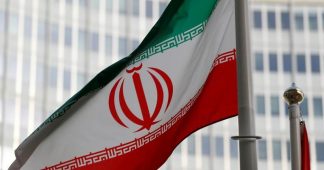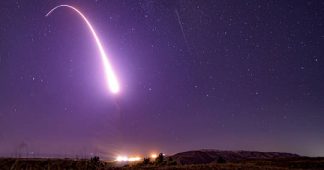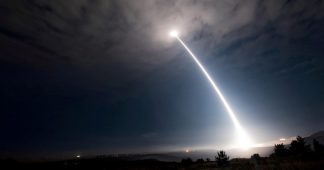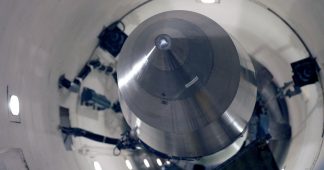By Sara Z. Kutchesfahani
November 9, 2020
In a statement released over the weekend shortly after news organizations declared he had won, President-elect Joe Biden said, “It’s time for America to unite.” Unite it must, and not just domestically, but also in the realm of global nuclear policy. Because, to put it mildly, Biden will have a lot to do to fix the nuclear mess left by his predecessor.
During his one term as president, Donald Trump singlehandedly destroyed decades worth of hard work done by previous US administrations in establishing trust, confidence, and diplomacy—on nuclear and non-nuclear issues—among both friends and foes. In four years, he made the prospect of nuclear proliferation, a new nuclear arms race, and even the use of nuclear weapons more likely. His nuclear legacy will be tainted by a series of failures including, but not limited to: eviscerating decades of trust-building between the United States and Russia, withdrawing from the landmark multilateral deal to stop Iran from obtaining nuclear weapons, engaging in a series of handshakes and photo ops with dictators that resulted in naught, and a sheer disregard and contempt for diplomacy, science, expertise, and professionalism. As President-elect Biden wrote in the March/April 2020 edition of Foreign Affairs:
“Diplomacy is not just a series of handshakes and photo ops. It is building and tending relationships and working to identify areas of common interest while managing points of conflict. It requires discipline, a coherent policymaking process, and a team of experienced and empowered professionals.”
A Biden administration is well equipped to repair the global nuclear damage bestowed upon the world by the inexperienced Trump administration. Moreover, if the United States is to reclaim its credibility and global reputation on nonproliferation and nuclear security, a President Biden and Vice President Kamala Harris will have to return to the deals Biden and his former Obama administration colleagues negotiated. And this will mean a revival of negotiations and diplomacy with a team of politically- and technically-savvy experienced professionals.
At the top of the list will be the extension of the 2010 New Strategic Arms Reduction Treaty (New START). New START is the last remaining bilateral arms control agreement between the United States and Russia, providing an anchor of strategic stability between the world’s two largest nuclear powers. In short, it limits the number of US and Russian deployed strategic nuclear warheads to 1,550 each. This will be a priority because the treaty is set to expire in February 2021, but it can easily be extended for up to five years. Biden has made his intention to pursue an extension clear, and has stated that he will use it as a foundation for new arms control agreements. Russian President Vladimir Putin has already stated that he, too, is ready to extend, and has yet to rescind the offer, given the news of Biden’s election win.
Next should be a revival of the 2015 Iran nuclear deal that the Obama-Biden administration negotiated, which blocked Iran from getting a nuclear weapon. Trump’s withdrawal from the historic multilateral agreement prompted Iran to abandon the nuclear limits established under the agreement, restart its nuclear program, and engage in even more destabilizing behavior across the Middle East. Biden has said that if Tehran returns to strict compliance with the deal, he would “rejoin the agreement and use our renewed commitment to diplomacy to work with our allies to strengthen and extend it, while more effectively pushing back against Iran’s other destabilizing activities.” However, reentry might be a complicated affair, given the Trump administration’s plans to continue increasing sanctions on Iran.
And, what about North Korea? Trump was the first sitting US president to meet with a North Korean leader, and in his “love letters” to Supreme Leader Kim Jong Un he claimed, “I have no doubt that a great result will be accomplished between our two countries, and that the only two leaders who can do it are you and me.” But the sheer reality is that the Trump administration accomplished nothing of substance. Biden has stated that he will empower US negotiators and jump-start a “sustained, coordinated campaign with our allies and others, including China, to advance our shared objective of a denuclearized North Korea.”
Finally, as far as US nuclear weapons are concerned, the Biden administration will likely rekindle the Obama administration’s commitment to reducing the role of nuclear weapons in the US national defense strategy. In 2017, Biden stated that the sole purpose of the US nuclear arsenal should be deterring—and, if necessary, retaliating against—a nuclear attack. As president, he will put that belief into practice, in consultation with the US military and its allies. In practice, that could mean adopting a no-first-use policy on nuclear weapons, something Obama considered but never enacted.
These are ambitious goals, and they would require considerable work to accomplish even in the best of times. But with other weighty concerns like the COVID-19 pandemic, economic stagnation, and climate change looming, tackling these issues will be even more difficult. But through openness, trust, science, dialogue, diplomacy, and cooperation, a Biden-Harris administration can succeed. And if anyone from the future Biden administration may be reading this, I would like to offer one simple recommendation: Read John Hersey’s Hiroshima—a timeless, powerful, and compassionate compendium of the memories of Hiroshima survivors. If everyone able to read did read this book, I am quite confident we would be living in a world without nuclear weapons, which would mean many fewer issues for the new administration to resolve
Published at thebulletin.org











